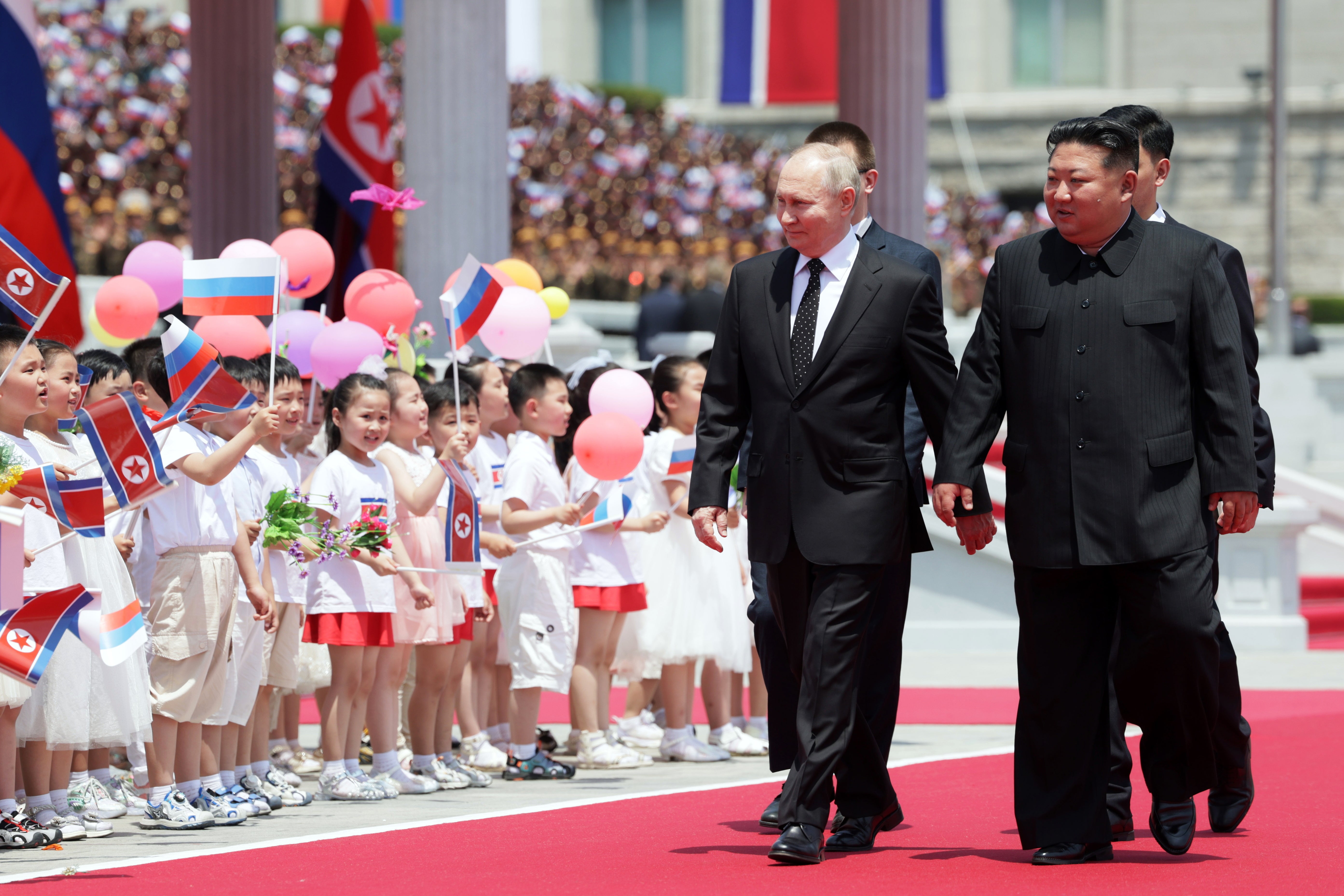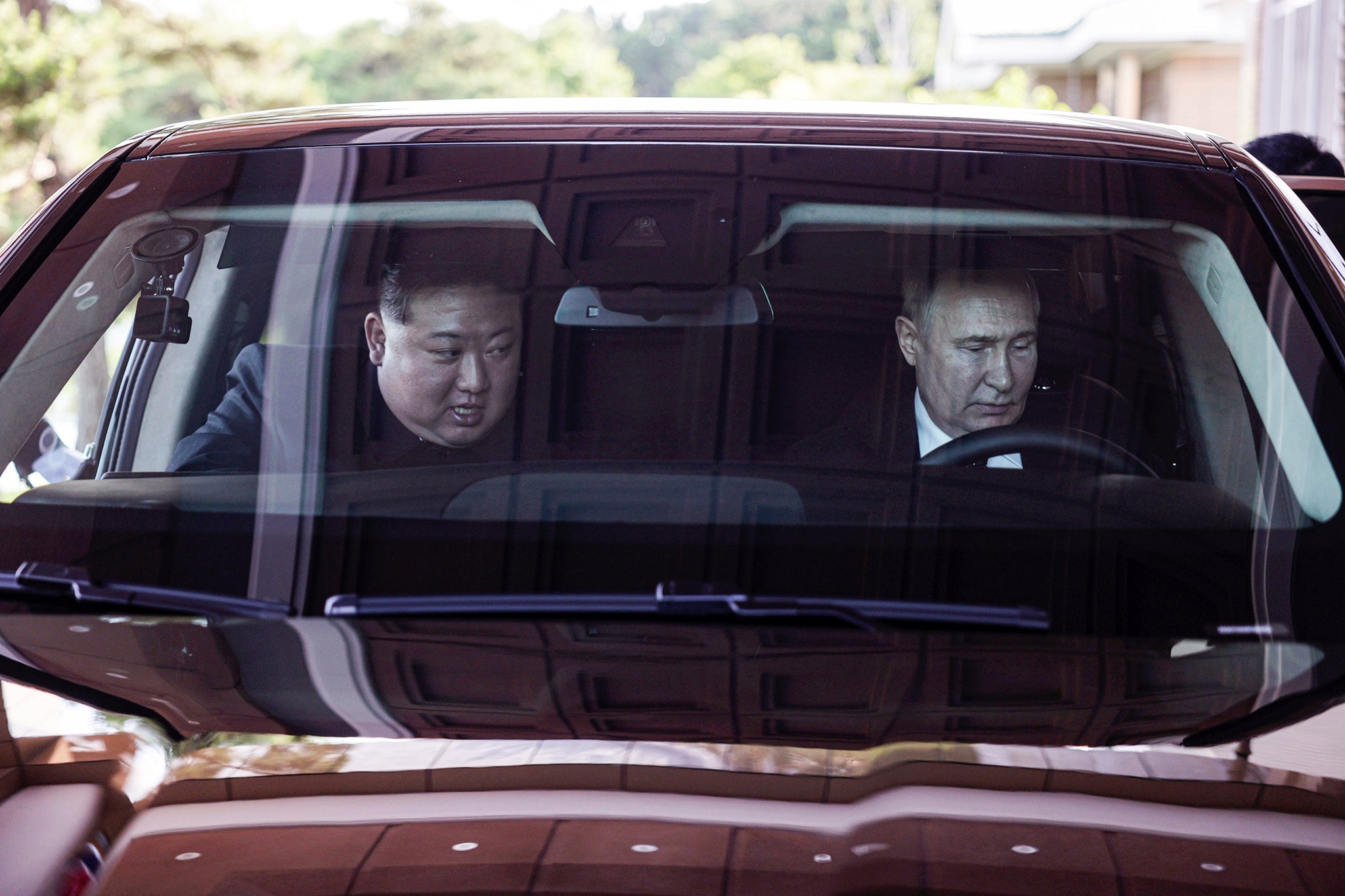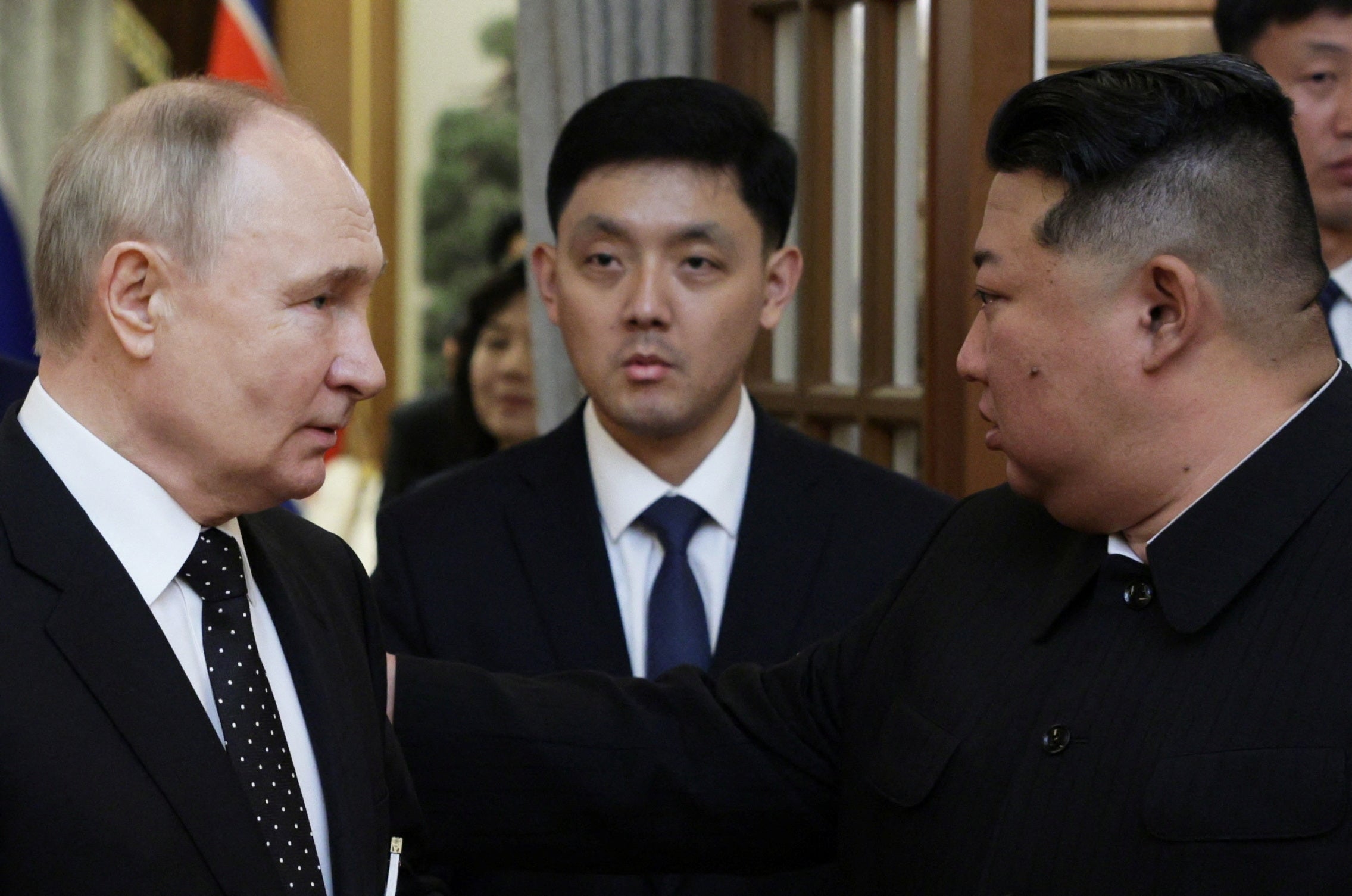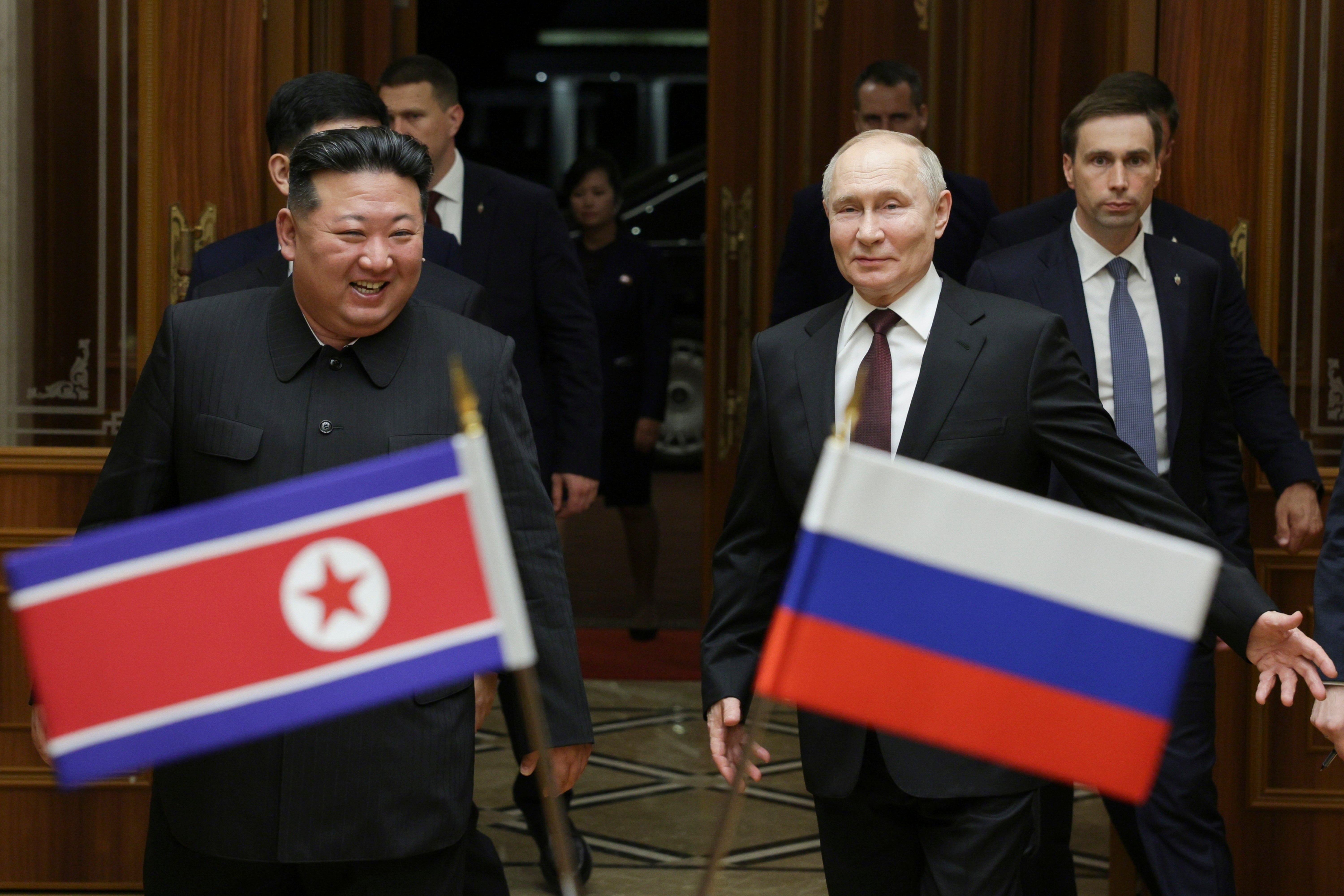Putin and Kim Jong-un sign mutual defence pact in case of attack on Russia or North Korea
Agreement to come to each other’s aid will spark fresh alarm in the West and allies in Asia
Vladimir Putin has signed a deal with Kim Jong-un that includes a mutual defence pact if either Russia or North Korea is attacked – a move that will alarm Western nations.
Desperate for ammunition and other weapons to fuel his invasion of Ukraine, Putin has sought to deepen ties with another international pariah also under heavy sanctions during his first visit to Pyongyang in 24 years. Kim and Putin signed what they described as the “strongest ever treaty” during the Russian leader’s trip. The deal, which the leaders said covered areas including security, trade, investment, and cultural and humanitarian ties, could mark the strongest connection between Moscow and Pyongyang since the end of the Cold War.
The courting of Kim, which includes gifts of limousines and the “strategic partnership” pact, has alarmed the United States and its Asian allies. Their spy agencies are trying to work out just how far the 71-year-old Kremlin chief will go – and what missile or even nuclear technology Russia might pass to North Korea in exchange for munitions to fight in Ukraine.
The devil will be in the detail of the Russia-North Korea deal, which has not been released. But it will add to the insecurity in nations such as South Korea and Japan about the growing tensions between Washington and its allies and the emerging axis of China, Russia and North Korea. While China has kept itself out of trilateral deals so far, Beijing is North Korea’s largest trading partner and Putin has also sought to maximise his political relations with President Xi Jinping.
Kim said the two countries had a “fiery friendship” and that the deal was their “strongest ever treaty”, putting the relationship at the level of an alliance. He vowed full support for Russia’s war in Ukraine. Putin called it a “breakthrough document”, reflecting shared desires to move relations to a higher level.
Kim offered a red carpet welcome to Putin, greeting the Russian leader with a hug at the airport on Tuesday night. They left in the same limousine to the Kumsusan State Guest House.

Putin was welcomed on Wednesday morning in a ceremony at the city’s main square, filled with what appeared to be tens of thousands of spectators, including children with balloons and people in coordinated T-shirts of the red, white and blue national colours of both countries. Crowds lining the streets waved flowers and flags and chanted: “Welcome Putin.”
Putin and Kim saluted an honour guard and walked across a red carpet. Kim introduced key members of his leadership including foreign minister Choe Son Hui, top aide and ruling party secretary Jo Yong Won, and the leader’s powerful sister, Kim Yo Jong.
The two leaders held one-to-one talks for about two hours, according to reports, and hosted a lavish ceremony for the guests. Kim called the Russian leader “the most honest friend and ally” of North Korea and referred to him as “the dearest friend of the Korean people”.

Putin thanked Kim for his support for the Ukraine war, part of what he said was a “fight against the imperialist hegemonistic policies of the US and its satellites against the Russian Federation”.
The two had a “friendly chat” and “exchanged their pent-up inmost thoughts”, state media said. The Russian delegation included foreign minister Sergey Lavrov, first deputy prime minister Denis Manturov, and defence minister Andrei Belousov. Other top officials were the health and transport ministers and the head of Russia’s space agency.
The two leaders exchanged gifts after the talks. Putin presented Kim with a Russian-made Aurus limousine and other gifts, including a tea set and a naval officer’s dagger. Mr Kim’s presents to Putin included artworks depicting the Russian leader.
Mr Putin also drove Mr Kim in the limousine during the visit, Russian state TV showed.

Western nations hit out at the visit before the signing of the deal. In Washington, US secretary of state Antony Blinken said Putin’s visit to North Korea illustrates how Russia tries, "in desperation, to develop and to strengthen relations with countries that can provide it with what it needs to continue the war of aggression that it started against Ukraine."
Nato secretary general Jens Stoltenberg said Putin’s visit showed he was “dependent” on authoritarian leaders for support.
“Their closest friends and the biggest supporters of the Russian war effort – war of aggression – [are] North Korea, Iran and China,” he said.

Along with China, Russia has provided political cover for Kim’s efforts to advance his nuclear arsenal, repeatedly blocking US-led efforts to impose fresh UN sanctions on the North over its weapons tests.
In March, a Russian veto in the Security Council ended monitoring of UN sanctions against North Korea over its nuclear programme, prompting Western accusations that Moscow is seeking to avoid scrutiny as it buys weapons from Pyongyang.
Dr Colin Alexander, a political communications expert at Nottingham Trent University, told The Independent that Russia-North Korea ties are not as close as they were during the Cold War. But it is the desperate need for support that has pushed Moscow into the embrace of Pyongyang.
“Russia is currently struggling for international support, with the UN and most of the international community disapproving of its actions in Ukraine. A global power in a situation like this is more likely to reach out to whoever is willing,” he said.
Join our commenting forum
Join thought-provoking conversations, follow other Independent readers and see their replies
Comments
Bookmark popover
Removed from bookmarks